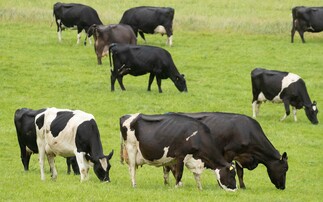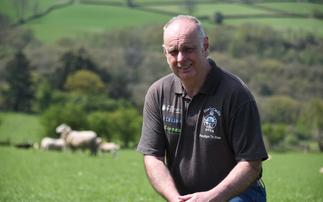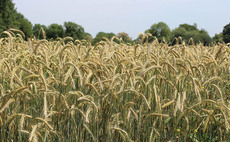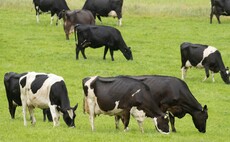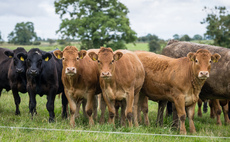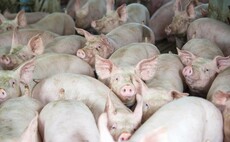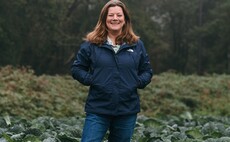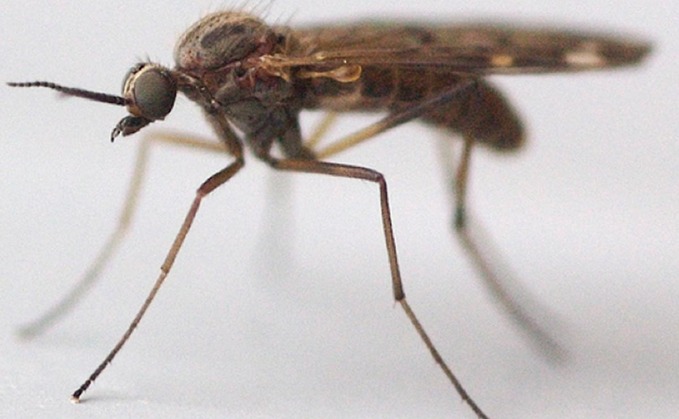
APHA has confirmed there is a 'very high probability' of a new introduction of bluetongue virus serotype 3 (BTV-3) this summer with infected midges blown over from northern Europe, adding its field teams 'stand ready'.
Biting midges are most active between April and November, and the timing of a potential incursion, APHA said 'will depend on the temperature and wind patterns'.
Bluetongue
APHA warned farmers to be ‘vigilant and monitor their animals frequently', adding their livestock, land and contact details should be registered with them to enable animals to be located in the event of an outbreak.
See also: Farm vets must be part of bluetongue response
Last November, APHA identified the first case of the disease in Great Britain through the annual bluetongue surveillance programme.
Since then, there have been 126 bluetongue cases confirmed in England across 73 premises in 4 counties, with the last case confirmed on the 8 March 2024. All cases confirmed to date have been detected through active surveillance, with the animals likely infected in late autumn.
Midges
Due to their proximity to areas in Northern Europe, where BTV-3 is actively being transmitted by the biting midge population and wind patterns, APHA said counties along the south and east coasts of England, including Norfolk, Suffolk, Essex, Kent, and Sussex, are considered 'most likely to be impacted.'
The risk of virus transmission is expected to increase as temperatures rise and with any increase of infections on the continent.
APHA said the Government was 'actively monitoring the situation' and has been working closely with a wide range of stakeholders to review the bluetongue virus control strategy.
It said the impacts on susceptible animals can vary greatly depending on the species of animal and the strain of bluetongue virus – some show no symptoms, while for others it can cause productivity issues such as reduced milk yield or, in the most severe cases, it can be fatal for infected animals.
'No authorised vaccine'
At the moment there were no authorised vaccines available for BTV-3 in the UK or Europe, but the Government said they are 'actively engaging with vaccine manufacturers on the development of a BTV-3 vaccine for use in the UK.'
Biosecurity minister Lord Douglas Miller said:
"We must not be complacent to the bluetongue virus risk and the challenge this could pose to our livestock sector. We want to ensure our control strategy is proportionate, and we will continue to work with industry to keep them briefed on the latest disease and veterinary assessments.
"Once the risk of transmission increases, we will also be offering free bluetongue tests to keepers in high-risk counties and we are actively engaging with vaccine manufacturers on the development of a BTV-3 vaccine for use in the UK. "
Transmission
Chief Veterinary Officer Dr Christine Middlemiss said:
"Our robust surveillance systems show we have now entered the period where biting midges are more active, and we know that the likelihood of bluetongue virus entering Great Britain is increasing.
"Despite the increase in midge activity, the current risk of transmission has not changed, but I would urge farmers to remain vigilant and report any suspicions to the Animal Plant Health Agency," adding bluetongue does not pose a threat to human health or food safety.
'Stand ready'
David Holdsworth, chief executive officer, Animal and Plant Health Agency said:
"Our field teams stand ready and will continue to work closely with farmers and animal keepers to ensure they are kept up to date and supported during any outbreak .
"I would encourage farmers to make sure they register their livestock and land with APHA, ensure their contact details are updated so we can locate animals in the event of an outbreak, and monitor their animals frequently for clinical signs."
Welsh Government
Wales' Chief Veterinary Officer Richard Irvine has also urged farmers in Wales to be alert to signs of bluetongue as we enter a period where animals are at an increased risk of contracting bluetongue virus from midges.
Mr Irvine said: "As we enter this period where animals are more at risk from Bluetongue from midges, I would urge all keepers to take action now to protect their herds and flocks to keep disease out, be aware of how to spot bluetongue and report any suspected cases immediately".
"Wales has never had a case of bluetongue – but – with past cases in England and in Europe we are encouraging people to be vigilant and prepared for Bluetongue to strike again."
Control Zones
APHA said the control of the disease is likely to include the declaration of bluetongue disease control zones surrounding premises where infection is confirmed to restrict the long-distance movement of susceptible animals and germinal products potentially spreading disease. Moves to slaughter will be allowed.
See also: Farmer confidence at an 'all-time low', says new NFU survey
Once bluetongue is known to be circulating in the domestic midge population, culling of livestock is not an effective control measure to deal with disease.
Livestock movement
APHA said it has enhanced the licensing application process for moving animals between disease control zones in the event of an outbreak, to make it faster and more convenient for keepers to make licence applications.
Rules on the movement of livestock from regions affected by bluetongue are already in place and farmers are reminded that animals imported from these regions must be accompanied by the relevant paperwork to clearly show they meet certain conditions designed to reduce disease risk.













